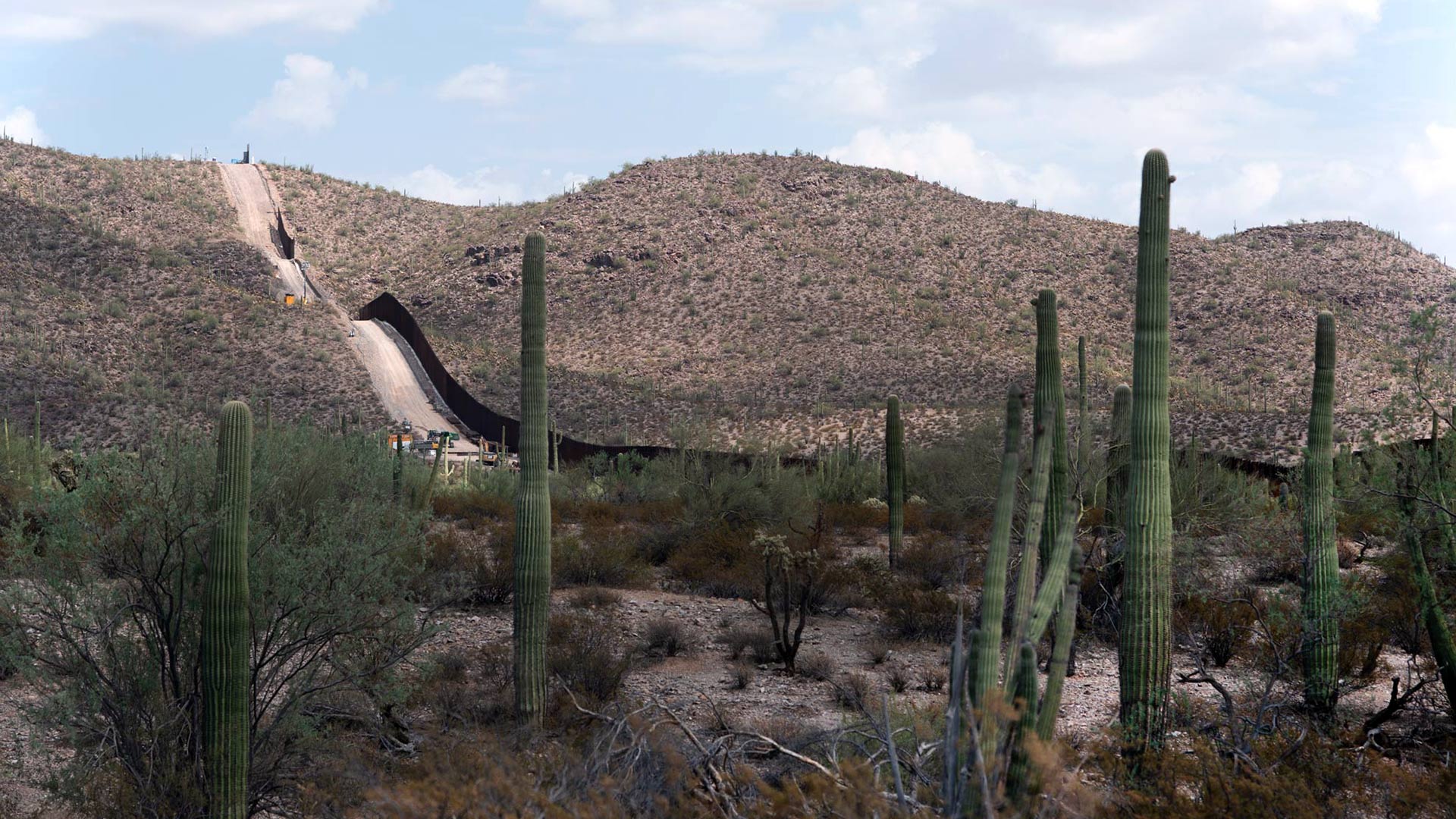 VIEW LARGER The border wall snakes up a hill on ancestral O'odham land in Organ Pipe Cactus National Monument, where construction crews have used dynamite and pumped water groundwater to build the new steel bollard wall.
VIEW LARGER The border wall snakes up a hill on ancestral O'odham land in Organ Pipe Cactus National Monument, where construction crews have used dynamite and pumped water groundwater to build the new steel bollard wall. Arizona Republican Congressman Juan Ciscomani has introduced a bill that aims to address public safety and environmental degradation along the southern border.
The bill, called the “FLASH Act,” short for the Federal Lands Amplified Security for the Homeland Act, proposes building roads on federal borderlands, allowing U.S. Customs and Border Protection access to wilderness areas, placing temporary structures on federal lands to secure the border as well as reducing the cultivation of illegal cannabis.
“In the Tucson sector, much of which I represent, we saw over the past four years trash piles and camps popping up where smugglers had no regard…for the land or the environment,” Ciscomani said. “This bill would solve that problem by requiring land managers to reduce the trash.”
The bill would also prohibit the Secretary of the Interior or the Secretary of Agriculture from restricting CBP activities on certain federal lands within 100 miles of the southern border.
Christina Hazard, legislative director with the National Parks Conservation Association, thinks the bill makes it easier for Border Patrol to achieve their enforcement activities along the border.
“This bill mandates a pretty onerous and time and staff intensive process that the public lands would need to undertake at a time when Park Service staff are being fired when we don’t have the seasonal rangers we need. Adding this burden on top of all of that is not going to better protect our parks and it’s going to really continue to take away from that visitor experience,” Hazard said.
She noted that the bill doesn’t recognize that places like Organ Pipe Cactus National Monument have endured extensive environmental and cultural impacts from an existing 30-foot border wall, which is part of a larger problem than trash left behind.
The bill also calls for the mitigation of wildland fires caused by migrants and prohibits migrant housing on federal lands.
“The Border Patrol have the tools they need, they have the agreements they need to move forward on their policies in land adjacent to the federal lands on the border so we don’t believe they need these extra legislative actions,” Hazard said. “We would love to see Congress move forward with legislation that actually helps better protect our public lands along the border that looks at the environmental impacts of the decisions we need to make on border security.”

By submitting your comments, you hereby give AZPM the right to post your comments and potentially use them in any other form of media operated by this institution.